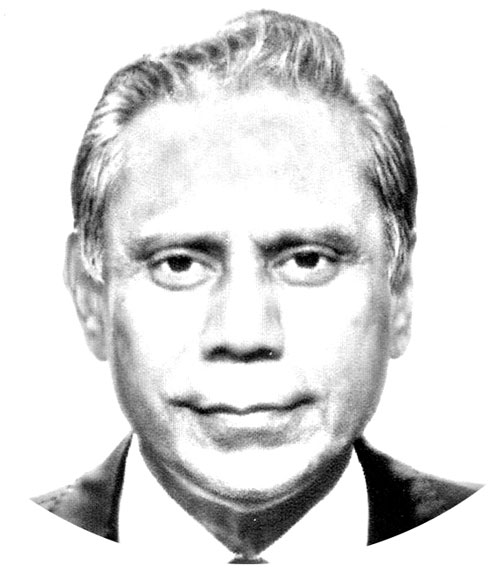Sultan M Hali
A fortnight short of the US presidential election, the Trump Administration delisted the East Turkestan Islamic Movement (ETIM) from its list of terror organizations. China reacted sharply to this decision and urged Washington not to “whitewash terrorist groups”. Wang Wenbin, spokesperson of Chinese Foreign Ministry, at a briefing in Beijing stated, “China expresses its strong dissatisfaction and firm opposition to the U.S. decision”. The decision by U.S. Secretary of State Mike Pompeo was made public nearly two decades after the designation of ETIM as a “terrorist group” following 9/11 attacks in New York. The rationale behind delisting ETIM from the list of terror organizations and its implications necessitate a closer examination.
The US listed the ETIM as a terrorist organization about a year after September 11. The State Department said at the time that the group had received training and funding from Al-Qaeda and had fought alongside the Osama bin Laden-led organization against U.S. troops in Afghanistan. The inclusion of the ETIM on the terror list was widely perceived as Washington trying to win Beijing’s support for its then President George W Bush’s war on terror. The group was designated as a terrorist organization also by China, the European Union, Kyrgyzstan, Kazakhstan, Malaysia, Pakistan, Russia, Turkey, the United Arab Emirates, the United Kingdom and the United Nations.
ETIM follows the three evils of extremism, separatism and terrorism. It has wreaked havoc in the China’s Xinjiang Uyghur Autonomous Region, which has a Muslim majority, misleading the Uyghurs, exploiting their sense of deprivation and provoking them to committing acts of violence. The rapid development of China’s eastern provinces had left the western region lagging behind. The dearth of employment opportunities, scarcity of communication resources in the Xinjiang Autonomous Region added impetus to the movement. Al-Qaeda’s support for the Uyghur Muslims, terrorist training and sedition to mount insurgency emboldened ETIM to create mayhem.
The world at large has suffered at the hands of terrorism and ETIM remains in the forefront of these attacks. Pakistan has also suffered terror attacks at the hands of ETIM protagonists. Hasan Mahsum, also known as Abu-Muhammad al-Turkestani, an Al-Qaeda ally was shot dead in a Pakistan Army counter-terrorism operation in South Waziristan on October 2, 2003. Subsequent military operations by Pakistan and drone attacks by U.S. forces eliminated ETIM supporters of the Tehreek-e-Taliban Pakistan (TTP). Terror mongers owing allegiance to ETIM are active around the globe. The UN Security Council said in a report in July that the ETIM controlled between 1,100 and 3,500 fighters, most of them in the city of Jisr al-Shughur in northwest Syria, with about 500 in Badakhshan, a province in northeast Afghanistan that shares a 90km (56 mile) border with Xinjiang.
China has dealt with the problem through a two-pronged policy. The hardened terrorists were dealt with firmly while the minor offenders and misled Uyghurs were sent to indoctrination centers to receive guidance in Chinese Law, Constitution and provided vocational training to lead better life. Simultaneously, massive development projects including the Belt and Road Initiative were undertaken, which gave priority to Uyghurs, uplifting them financially. Uyghur children have been inducted in a vast array of educational institutions to provide them equal opportunities to improve their quality of life. The Chinese policy of tackling the issue has worked and this scribe has had the opportunity to witness the sea change first hand.
Reportedly, some elements in the West have been surreptitiously supporting ETIM to destabilize China’ western region. The delisting of ETIM from the list may provide it the opportunity to organize itself outside China and attack Chinese targets abroad, including Chinese organizations, Chinese tourists and Chinese airlines. There is fear that in the wake of the Sino-US rivalry, which enhanced during the Donald Trump era, may provide the U.S. the tool to target China. The change of guard at the White House in January 2021, may not necessarily change ETIM’s status in the U.S., although the timing of the delisting could be the Trump Administration’s attempt to provoke China. The U.S. State Department states that the group was delisted “because, for more than a decade, there has been no credible evidence that ETIM continues to exist”. Perhaps the incoming Biden Administration may redress the issue but the new president will have his hands full in dealing with COVID-19 and numerous domestic issues.
In fact, geopolitical or political rivalry should not have been the rationale for compromising international, regional and national security. Being a champion of counter-terrorism efforts, the U.S. should not have delisted ETIM from the terror list. The U.S. and China have many differences and difficulties but a bi-partisan approach on counter-terrorism can provide solutions. The redeeming factor is that the UN continues to recognize ETIM as a terror organization. China should continue providing evidence of the ETIM’s nefarious aims to the world. In the wake of the US decision on the ETIM, China might seek to increase its counter-terrorism activities with its neighbours, like Afghanistan and other nations. After years of crackdown, the progress of counter-terrorism in Xinjiang is visible. The potential threat is outside China, like Europe, the Middle East and Central Asia where China should work hard to win the support of local governments. The Chinese Foreign Office Spokesperson opined that China and the United States should strengthen communication and dialogue, manage differences on the basis of mutual respect, expand cooperation based on mutual benefit and promote the sound and stable development of China-US relations.
—The writer is retired PAF Group Captain and a TV talk show host.










